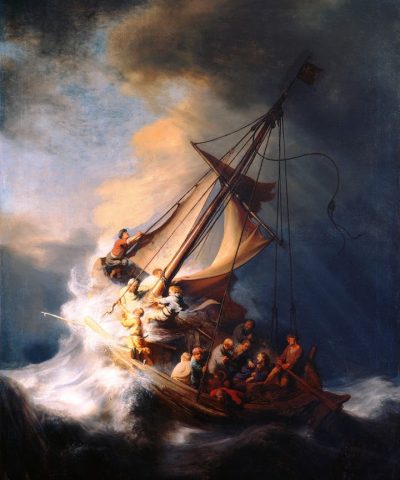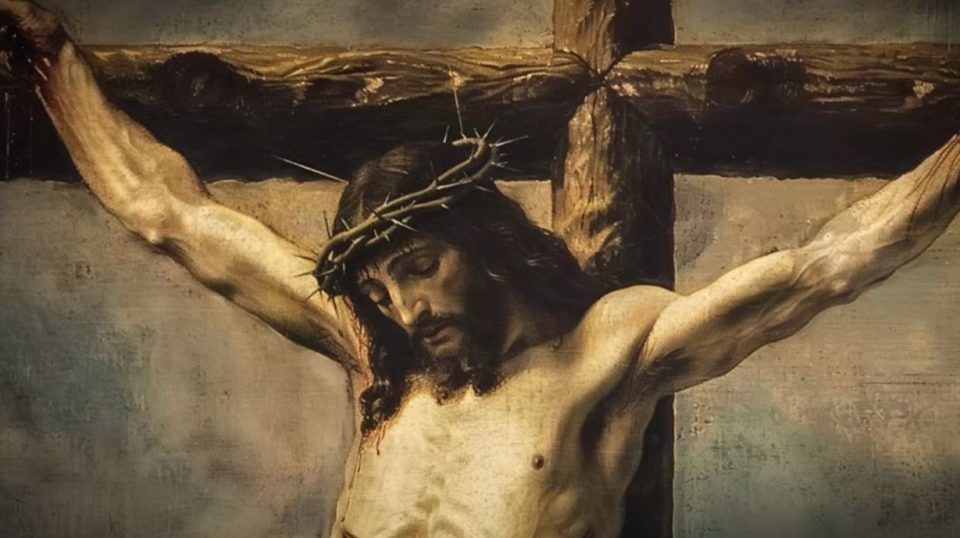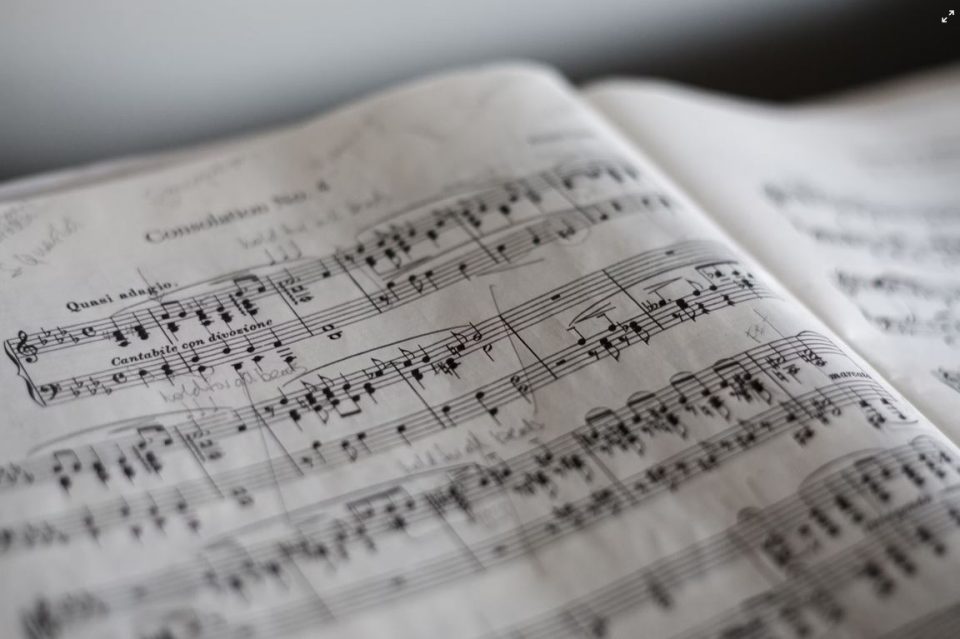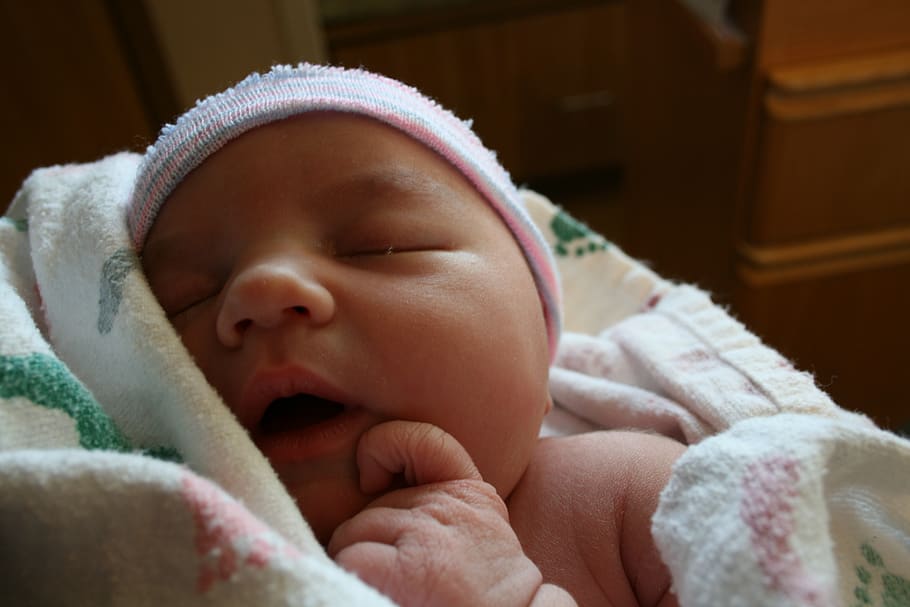Christopher Altieri: Hard Lessons from a Dismal Week

Brigitte Gabriel: America, Where Have You Gone?
September 14, 2018
Msgr. Charles Pope: Sacraments, Not Social Events
September 14, 2018
The-Storm-on-the-Sea-of-Galilee-1633-oil-painting-on-canvas-still-missing-after-robbery-from-Isabella-Stewart-Gardner-Museum-1990-sailing-boat-men-miracle-of-Jesus-calming-the-waves
By Christopher Altieri, The Catholic Thing, Sept. 14, 2018
 There are three takeaways from the announcement that came from the Vatican on Wednesday, of a gathering of the presidents of the world’s bishops’ conferences (in February 2019) to discuss “the protection of minors”: 1) the pope is closing the barn door after the horse got out; 2) the C9 cardinals had to twist the pope’s arm to close the door; 3) when it comes to the moral rot in the clergy, high and low, the pope is still part of the problem.
There are three takeaways from the announcement that came from the Vatican on Wednesday, of a gathering of the presidents of the world’s bishops’ conferences (in February 2019) to discuss “the protection of minors”: 1) the pope is closing the barn door after the horse got out; 2) the C9 cardinals had to twist the pope’s arm to close the door; 3) when it comes to the moral rot in the clergy, high and low, the pope is still part of the problem.
“After hearing the Council of Cardinals,” the communiqué reads in pertinent part, “[Pope Francis] has decided to convoke a reunion with the Presidents of the Episcopal Conferences of the Catholic Church, on the theme of ‘protection of minors’.”
The protection of minors is a sine qua non of any credible response to this crisis. It is also only one particularly awful element of the general moral disaster within the ranks of the Catholic clergy. The Press Office summary of the three-day C9 meeting (which included the C9 communiqué announcing the February meeting) mentions “vulnerable adults,” but that is little more than a brightly colored band-aid – and no comfort.
In any case, a tête-à-tête with the world’s episcopal club managers on keeping “minors and vulnerable adults” safe from clerics is no part of any solution. At best, it suggests a persistent state of denial of both the nature and the gravity of the situation. People are demanding action: swift laicization of ex-Cardinal McCarrick would be a good and easy start.
Curial dialect is peculiar, but it does not take much experience with it to see that the C9 members are telling us they spent much of their three days together convincing the pope to make some pretense of a response to the current crisis.
Those two surmises tend to corroborate the third – that Francis is still part of the problem – of which he gave ample evidence Tuesday.
“In these times,” he said Tuesday morning after the daily readings at Mass in the Domus Sanctae Marthae, “it seems like the ‘Great Accuser’ has been unchained and is attacking bishops.”
Pope Francis went on to say, “True, we are all sinners, we bishops. He tries to uncover the sins, so they are visible in order to scandalize the people. The ‘Great Accuser,’ as he himself says to God in the first chapter of the Book of Job, ‘roams the earth,’ looking for someone to accuse.”
To be blunt, the idea that discovery of bishops’ sins would be a scandal to “the people” is precisely the morally bankrupt excuse that bishops have used for generations to hide their own wrongdoing and to justify their coverup of misbehavior bypriests in their charge.
That the pope should attribute attempts to discover episcopal wickedness to the devil – and so paint the faithful all over the world clamoring for the truth as fiendish stooges – is utterly astounding.
“The bishop,” Pope Francis continued, “cannot remain distant from the people; he cannot have attitudes that take him away from them.” This, from the man, who, in 2015, said of the put-upon and sorely tried faithful of Osorno, Chile, “[They] are suffering because they are dumb.”
The Pope went on to say, “The ‘elites’ criticize bishops, while the people have an attitude of love toward the bishop.” That notion is, at the very best, the epitome of Bulverizing and blame-shifting: ill-becoming the Vicar of Christ on Earth.
One Vatican official, who spoke on condition of anonymity, since he was not authorized to address the subject, said recently, “It is not the ‘elites’ who are leading the charge in demanding accountability from our bishops. It is the people, the ordinary people in the pews, who are rightly horrified at the plague of clerical sexual abuse, and the cover-up of that abuse by the bishops.”
One possibility is that Francis was alluding to Archbishop Carlo Maria Viganò, author of the 11-page “testimony” that appeared late last month, to which the C9 on Monday said the Holy See is preparing a response.
As far as whistleblowers go, it is fair to think that Viganò more closely resembles the gangster-turned-federal-witness, Joe Valachi, than he does the heroic NYPD detective, Frank Serpico. A frank estimation must conclude that many of Viganò’s specific allegations are either tangential, or ancillary, or simply tainted with some desire for personal vendetta.
Nevertheless, as far as Archbishop Viganò’s testimony is concerned, there is one central question regarding Pope Francis: is Viganò’s report of his 23 June 2013 conversation with the Holy Father accurate?
If Viganò’s recollection is not accurate, then he could be a living saint, and it would make no difference: he would still have done immense injustice to the person of the Holy Father and damage to the Office of Peter, not to mention incalculable harm to the faith of God’s holy people.
If Viganò’s recollection is accurate, then he could be the devil himself, and it would make no difference: Pope Francis would have had a report of McCarrick’s depraved character, which he should have taken seriously, and yet failed to act.
In any case, should the Vicar of Christ see fit literally to demonize his erstwhile adversary, one hopes he would call him by name, and leave the faithful out of it.
Meanwhile, we shall wait to see what the heads of the roughly 130 bishops’ conferences can do together to clean up the mess they and their predecessors have made, and reform a corrupt and failing leadership culture, of which they are the principal beneficiaries.
Of bishops’ conferences generally, I have heard it said that they are necessary evils. I have always considered the expression misapplied: wrong on both points. The organs are not evil. Neither are they necessary. In February, we are likely to discover whether I am right on the first count.
________________________
Christopher R. Altieri is a journalist, writer and editor based in Rome, Italy. He spent more than a dozen years on the news desk at Vatican Radio. He holds the PhD from the Pontifical Gregorian University, and is the author of The Soul of a Nation: America as a tradition of inquiry and nationhood.




